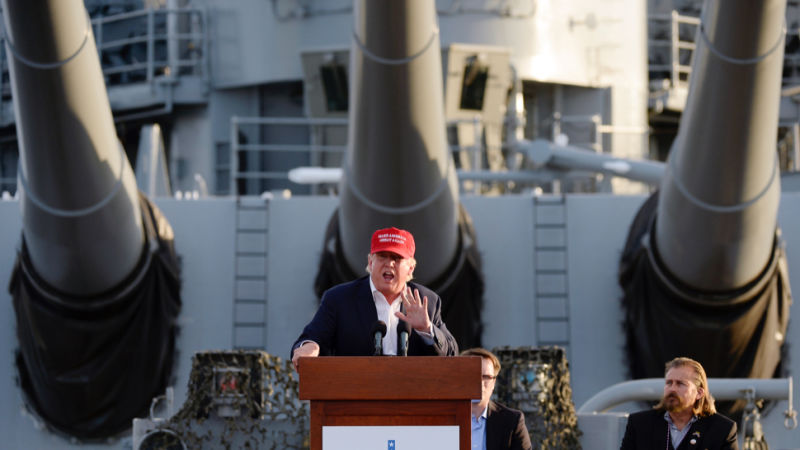Trump’s Trade-off for Military Spending
March 2, 2017
During President Trump’s recent address to Congress, a sharp budget increase of roughly 10% (a $54 billion difference) to defense was announced. This will come at the cost of steep cuts to nonmilitary programs by the same amount, as disclosed by White House officials. Currently, this is simply a budget proposal, and later this year, a full budget will be announced. However, Trump’s proposals have sparked controversy and debate amongst both Democrats and Republicans. Even the right is currently divided over his unorthodox plans.
Trump’s proposed spike in military spending will undoubtedly have a huge cost. But where will the money come from? Although the Trump Administration has yet to release specifics on what exactly will be cut at this time, Trump has proposed significant cuts to other government programs, specifically those involving education, science, and welfare. Important decisions about Medicare and Social Security still have to be made, as Trump has previously made campaign commitments to protect those programs. He has expressed that “he’s going to keep his word to the American people,” on these issues. His intentions and reasoning are clear. Trump has called his budget cuts and military spending “a public security and national security” budget, and hopes to send a “message to the world in these dangerous times of American strength, security and resolve.” Nevertheless, controversy has risen questioning Trump’s decision in regards to its effects on the United States.
First of all, why would Trump pump more money into the military?
Cuts to nonmilitary programs will have a significant effect on the nation. Specifically, education cuts yields funding crises for schools throughout the nation, forcing teachers to be laid off and “nonessential” programs to be cut. Science cuts will put this country behind on developments in medicine and energy. The 24% cut to the Environmental Protection Agency’s budget angered environmental advocates and Democrats. As Scott Faber of the Environmental Working Group remarked, “The assault on human health begins now with President Trump’s plan to slash the E.P.A.’s resources, which are vital to protecting Americans’ drinking water and air from pollution.” Lastly, welfare cuts hope to put people back into the workplace, but will also cut support for the poor of the nation.
On the other hand, increased military funding does bring significant benefits. A strong military will allow Americans to feel more secure each night, first of all. It also allows the country to have tighter means of keeping world peace, as the military will be better able to fend off against any conflicts that may arise. Lastly, it assists hard-working soldiers and engineers for the United States, who will pump some money into the U.S economy as a result.
It is also notable that some of Trump’s other major commitments and plans, including infrastructure improvements and plans to build a border wall, both of which have significant expenses, have not been addressed. However, Mick Mulvaney, who is the director at the Office of Management and Budget (OMB), has stressed that the currently outlined priorities do not reflect policy on broader fiscal issues, which will be addressed later on.
Clearly, although these budget plans are not final and changes are still to be made, Trump has showed his position on military funding. But is spending more on the military justified, if it comes at a heavy cost to social and intellectual programs? Are the potential benefits worth it? What’s your opinion on this divisive issue?



